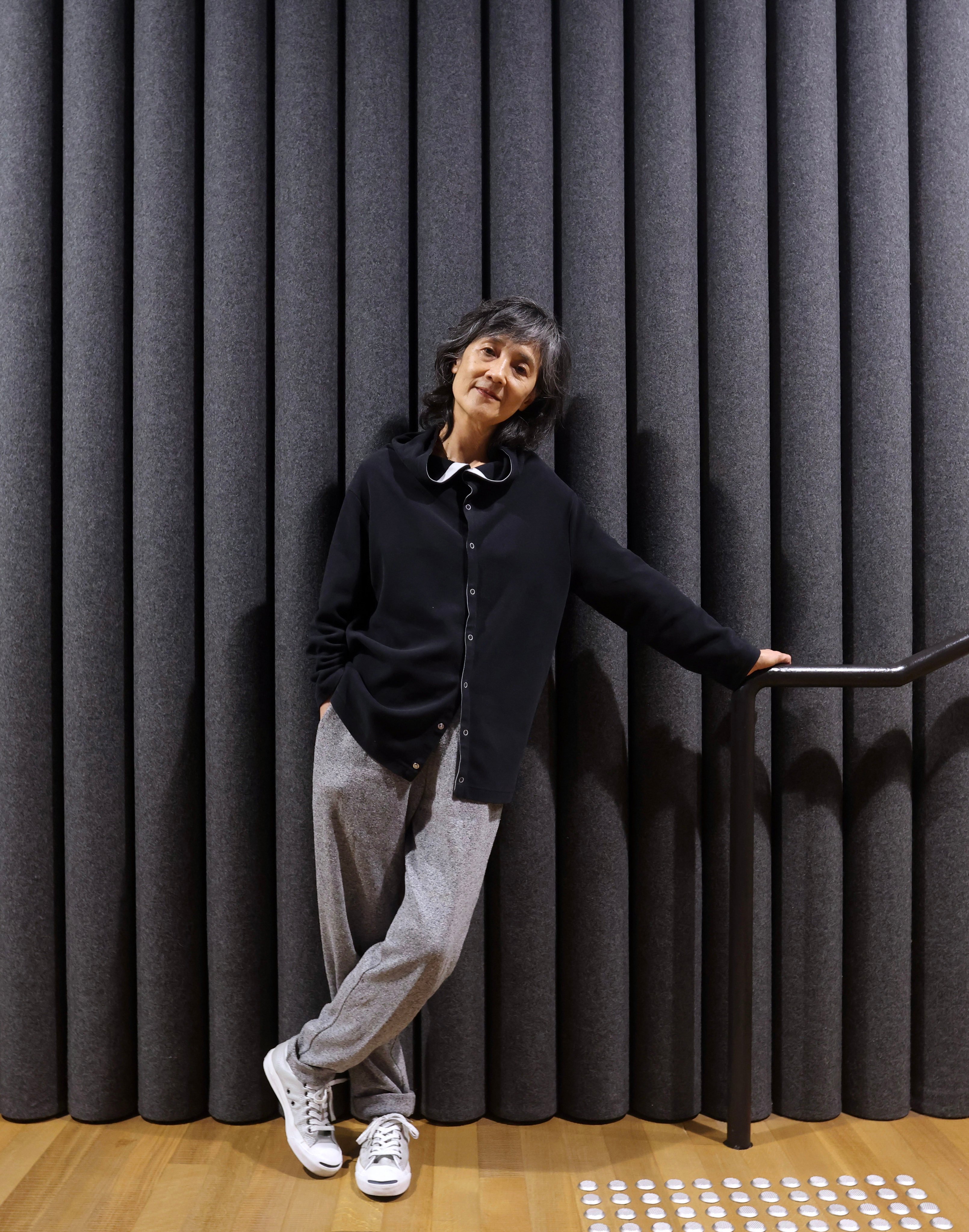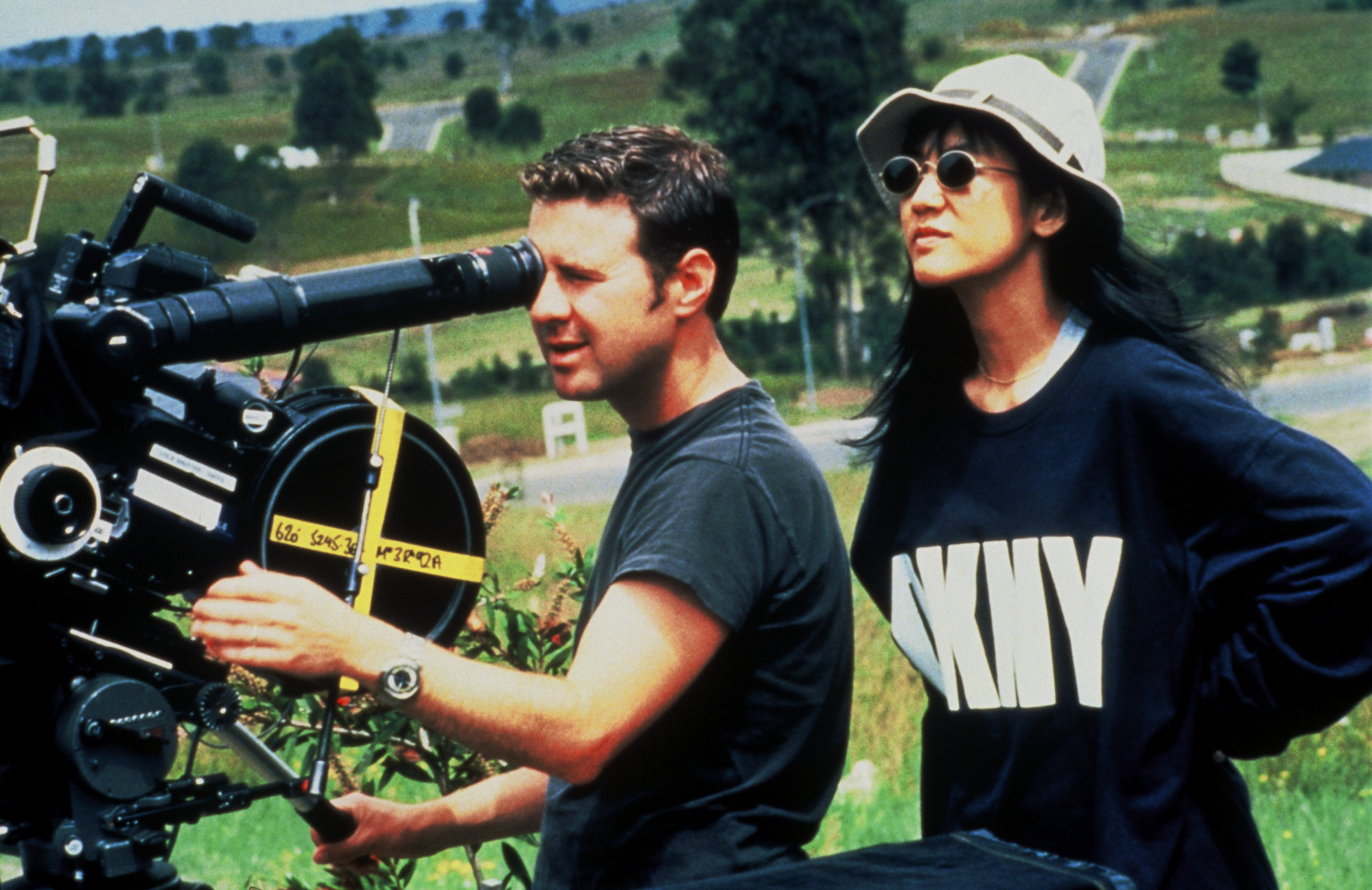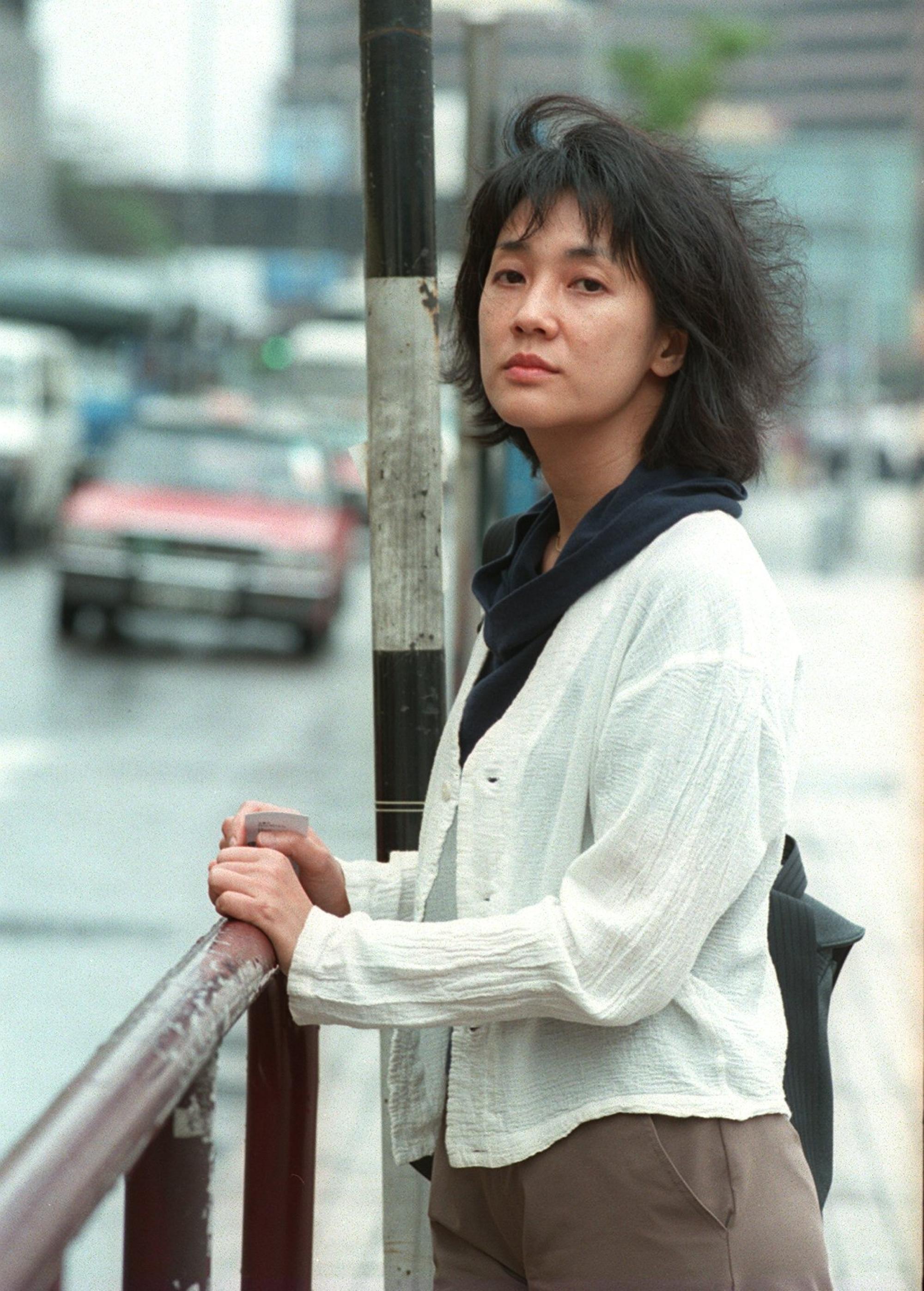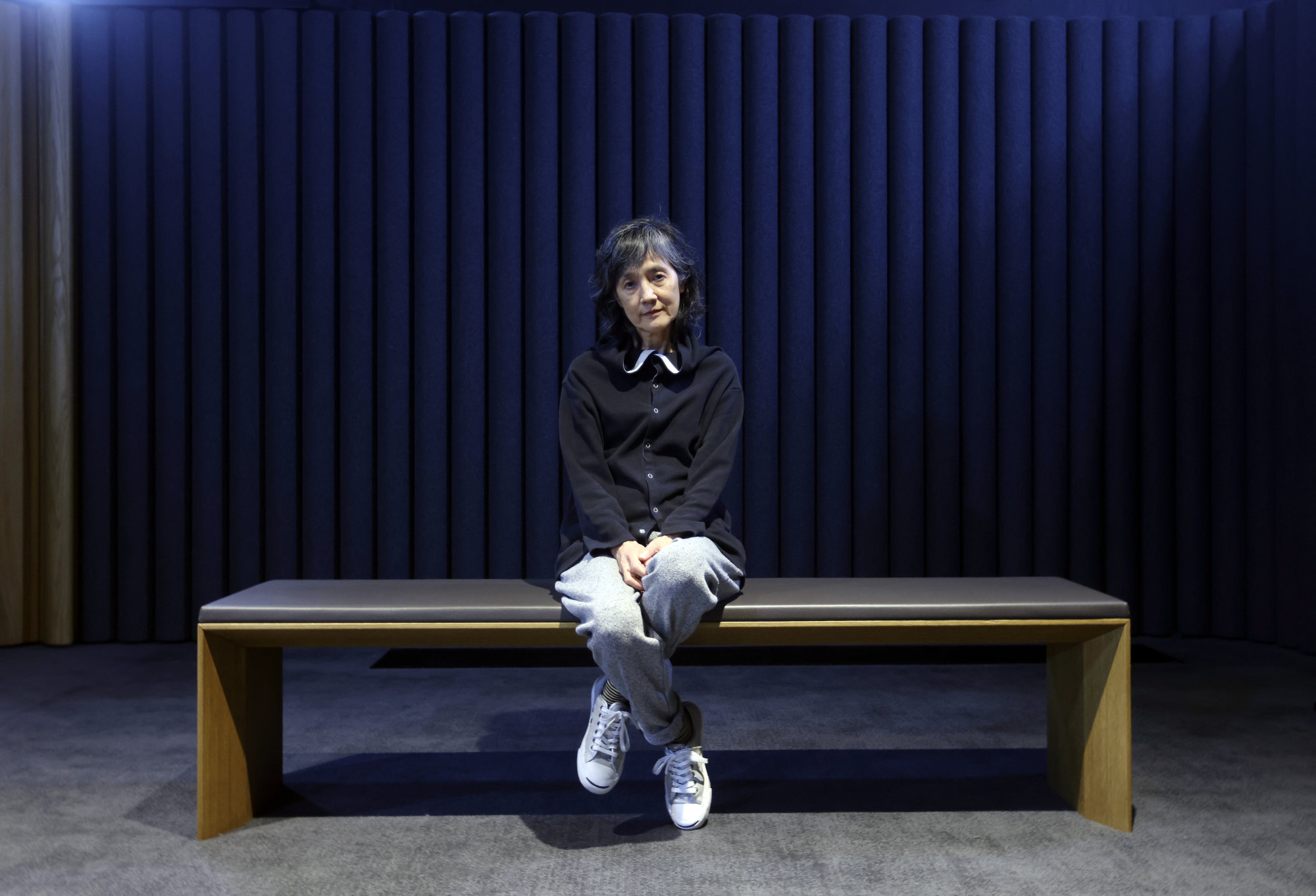
- The themes that mark the films of Macau-born, Melbourne-based Law are all there in her first feature – now screening in Hong Kong, unlike her latest
In 1982, Clara Law Cheuk-yiu, whose directing experience had been until then confined to three years at Radio Television Hong Kong, became the first Chinese student at Britain’s National Film and Television School, as the future of her colony was being ping-ponged between British prime minister Margaret Thatcher and Chinese premier Deng Xiaoping.
Against this background, Law wrote, directed and starred in what was intended to be her graduation film, but grew into her first feature. Its English title is They Say the Moon is Fuller Here; but the Cantonese title has a question mark to emphasise the doubt conveyed in the English words “They say”.
The film went on to win the Silver Plaque at the 1985 Chicago Film Festival, by which time Law had returned to Hong Kong to begin her feature-film career.
Back in her time at RTHK, Law had come across a scriptwriter called Eddie Fong Ling-ching, who she now contacted, warned that she had no money, but asked if they could work on a film together.
Hong Kong Family: Teresa Mo, Edan Lui in one of the best local films in 2022
Their collaboration led to a 1988 film whose English title is The Other Half and the Other Half. Its Cantonese title is I Love Astronauts – astronauts being the nickname for those workers who were shuttling between work life on planet Hong Kong and family life on such passport-generous planets as, say, Canada or Australia.
You’d hear the term frequently in the run-up to the 1997 handover, and, not surprisingly, it has re-entered the conversation these past few years.
Law and Fong have collaborated professionally ever since and, off set, they married in 1992.
In Asian cinema, Law is probably best known for directing what has been termed the “migration trilogy”: Farewell China (1990), Autumn Moon (1992) and Floating Life (1996). All three illustrate how geography can fracture families.
In the bleak New York midwinter of Farewell China, a mainland Chinese couple – played by Tony Leung Ka-fai and Maggie Cheung Man-yuk – tussle, tragically, with their split lives and split minds.

In Autumn Moon, Pui-wai, aged 15, loiters in pre-handover Hong Kong with her grandmother – officially declared dead on the family’s Canadian citizenship application forms – waiting to join her overseas parents.
“You’re here as migrants, not here to enjoy life!” yells Floating Life’s daughter in Sydney to her newly arrived Hong Kong parents.
Law now lives in Australia; she and Fong moved to Melbourne in the mid-1990s. She hasn’t been in Hong Kong, she reckons, since “2018 or even ’17”. The closest she’s come, regionally, is Taiwan “doing our research and also doing something for Golden Horse”, Taiwan’s film awards.

She doesn’t add that the “something” in November 2021 was picking up the best director prize for her latest film, Drifting Petals, of which more later.
But this afternoon she’s back in Hong Kong, sitting in the empty cinema at the M+ museum in the West Kowloon Cultural District where, the previous night, a screening was held of a digitally restored They Say the Moon is Fuller Here, as part of the M+ Rediscoveries series.
In an email, Li Cheuk-to, curator, Hong Kong Film and Media, at M+ says the series “introduces audiences to key filmmakers whose contributions to cinema discourse and cultural histories are significant” and describes the film as “quite a remarkable feature debut”. Further screenings will take place this month.
It is by no means a masterpiece; there’s some toe-curling acting, particularly by Westerners. But it’s a sympathetic insight into young Chinese, from both Hong Kong and the mainland, amid the nasty scurf of 1980s London, and the most astonishing aspect, watching it with hindsight, is how many of her later themes are already apparent: sexual awareness, food as desirable memory, yearning, alienation, a sense of dread, visual shock (a particular Law calling card: at some point a fetus or blown-out brains or bloody self-harm will make you wince).
Mum took me on my sixth birthday and it was very, very much in my memory – the vanilla ice cream. And it was still there, I had that ice cream againClara Law
“I was surprised, I could see the things which are still me now!” agrees Law. That surprise came when she re-watched her breakout work before she began the restoration: she couldn’t actually attend the M+ screening, being a newly arrived, amber-coded pariah.
Today she’s turned acceptably blue but having removed her mask – to drink water and, being a pro, to be heard clearly – she insists on parking herself a socially distanced two rows away. It’s like interviewing an audience member who’s so eager to see the next film she’s arrived hours before everyone else.
When she talks, her hands fly up and down like birds, her eyes glow, she’s more and more engaged. Naturally, she looks older than that on-screen girl of 37 years ago in her one-off acting role, and these days she has an Australian accent. (She refers to “Hong Kong uni” and, later, there’s a confused moment when she slaps herself, apparently crying “Meta! Meta!”, until it turns out she’s referring to physical matter.)
But she’s still slight, still long-haired, still retains a gamine quality.
Clara Law on her movies about Chinese emigration, and enjoying herself
“Eddie didn’t know me then,” she says of the film. “When he watched it, he said he saw the first me. I have been very true to myself all these years – that whole me wanting to find a truth, that whole me that wanted to find beauty, that me that was very much inclined to be a poet.”
Law is usually described as a Hong Kong Second Wave film director. She always claims she wasn’t aware of these numbered waves, and, anyway, she was born in 1957, in Macau, where she lived for 10 years.
A film of her life would begin with a two-storey house in a quiet backstreet of flowered balconies, in a sleepy Chinese town of Portuguese signs and priests, with grandparents nearby and a cinema within walking distance.
I never fitted in completely here. My values, what I was after, I couldn’t find in Hong Kong.Clara Law
She says that when she was filming Drifting Petals in 2017, “the girl goes back to her hometown to look for her house. It was just part of it, it was not meant to be autobiographical but, you know … I was trying to look for my house, of course it wasn’t there, the whole street was different.”
She remembers an ice cream parlour, where “mum took me on my sixth birthday and it was very, very much in my memory – the vanilla ice cream. And it was still there, I had that ice cream again”.
Can taste ever be recaptured? “No, no. It will never be the same. But you’re looking for something.” (In 1994, Law contributed to a film called Erotique, for which three women directors made suitably frisky works. Her segment was about trying to rekindle a love affair, and called Wonton Soup.)
Michelle Yeoh named ‘Icon of the Year 2022’ by Time magazine
On December 3, 1966, eight people were killed by Macau police during anti-Portuguese riots. Law’s parents, originally from Guangzhou, quickly moved the family to Hong Kong in 1967. Their optimistic LeaveHomeSafe attempt would be stymied when anti-British rioting, inspired by Macau, killed 51 people in Hong Kong that year.
“They wanted to take us to a safer place and then it was not a safer place,” as Law puts it.
What she remembers is saying goodbye to the Macau home. She couldn’t – she can’t – let it go. “In my dreams, I would always be flying up and looking down into that house.”
Macau is a Jesuit town, and it is the Jesuits who claim “give me a child until seven and I’ll show you the (wo) man”; and, on hearing this, Law smiles and says, “When I was in Venice – which film was that? – someone from Portugal said I had this Portuguese-ness in me, a little bit of sadness, something.”
In answer to her own question, the film could have been Temptation of a Monk starring Joan Chen, which was shown at the Venice Film Festival in 1993, or The Goddess of 1967, which was shown in 2000.

It was in Macau that she became Clara, when she was baptised Catholic. Now she no longer goes to church so that’s gone, too.
Nothing about her Hong Kong life matches the vividness of her Macau memories – a yellow shawl on a porch, flowers like firecrackers – that she evokes sitting in a deserted cinema. She shrugs a little.
“In Hong Kong we were always told, ‘This is a borrowed time, a borrowed place.’ Change was already in us. I never fitted in completely here. My values, what I was after, I couldn’t find in Hong Kong.”
Her father was a businessman, “travelling in marble”, as she puts it. He would say that no girl should be a vase – just an empty vessel. “If you wanted to study, dad would be there all the way. He was very much a girls-and-boys-are-the-same kind of man.”
Law was “the last of the girls”, she says. How many girls were there? She hesitates. “Three.” Then she adds, “Actually, I found out afterwards I have another sister, the eldest. She was left behind in China because my dad was going to bring my eldest brother out and, the next day, my sister. But the next day, the border was closed. So my sister ended up staying back and being brought up by my maternal granny.”

They didn’t meet until the sister was grown up. “And strangely, she’s the closest to me.”
How many brothers? “I have one younger than me. And then later on – very, very much later on – my parents had twin boys.” There’s a gap in that accounting but, in cinematic fashion, the story won’t become clear until the final moments of the interview.
Her mother wanted her to be a lawyer. “She just wanted me to be safe, to have a profession.” But Law had no legal inclinations. At the University of Hong Kong, she initially studied sociology, then she tried psychology. She didn’t like either. “All that approach – at the beginning – is very scientific. How can you study human beings as a science? It’s not right! So delete, delete.”
She moved on to English literature. “I love stories, I could spend my days reading. I didn’t need anyone to be around me. I’m that kind of girl, in my own world.”
She wrote a prize-winning essay. It was about the house in Macau. She tried to write poetry in English. “But I could not excel like a British poet. I have to find something else that I felt is the whole of me, that is not the me struggling to find a word. I want it flowing out of me, without labouring.”

At film school in England, trying to write the script for They Say the Moon is Fuller Here, “the missing something”, as she calls it, grew stronger. “You’d wake up one morning thinking you could smell home cooking. Or you’d wake up and think you did not want to say a word of English, you just wanted to speak something in your mother tongue.
“I was brought up with English literature and, somehow, I’d felt I know you all, I understand you. Why aren’t you looking at me as part of you?” She was, she says, “in mid-air, where you don’t know where you are”.
There were 25 students in her class – 20 British, five from overseas. “And I was the Chinese that may not have a home.” In 1984, no one was sure what Hong Kong would become. Her film’s soundtrack includes occasional news chatter to convey the uncertainty.
That December, the Sino-British Joint Declaration, agreeing to Hong Kong’s transfer in 1997, was signed. Law was right: when she returned to Hong Kong she didn’t have a home because, in 1985, her peripatetic parents moved again, with her younger twin brothers, to Australia.
Viewers of Floating Life, in which the ageing parents who move to Australia have grown-up children in different countries plus two later-born boys, will spot the overlap.

Her production company is called Lunar Films, a homage to the moon. Maybe it also echoes “lunatic”, “lunacy”? But Law is having none of it. “We didn’t analyse it like that. That’s the Western mind!” she cries affably. (Guilty as charged.)
In the same way, when you see the title The Goddess of 1967, which she directed in 2000, you might read into it a reference to a certain democracy statue, as glimpsed at the end of Farewell China, or to those 1967 riots. But the divinity is a car: a 1967 Citroën DS (the initials DS, in French, sound like déesse or goddess) and the film is a pitch-dark road trip set in a surreally bright Australian landscape.
By that stage, Law and Fong had recognised they were actually living in Australia. It had been a gradual encroachment: visiting parents, buying a house because it was cheaper, planning to live there, maybe, for part of the year … They were happy in Hong Kong, she says. But it was Australia that offered recognition at film festivals and, therefore, work.
As they weren’t sure about the country, they did their own road trip to seek out its soul. Did they find it? “Kind of. Nature spoke to me, the primeval side of Australia. It’s so vast. It’s a bit like Noah’s Ark, the beginning of life. It awakes in you a kind of fear. Somehow, you feel there’s danger everywhere.
“I never found Hong Kong is totally my home. And also, I feel you don’t have to be in a place to be close to your own roots. Everything travels with you – in your heart, your blood – as long as you don’t stop searching for it.”
Not exactly a ringing endorsement, but Lunar’s Australian films were successful: Australia chose Floating Life as its official entry for Best Foreign Language Film at the 1997 Academy Awards. Although it wasn’t nominated, it was the first time the country had submitted a film in that category.

In 2000, Rose Byrne, who plays a blind, traumatised young woman – a manic-pixie-dream-girl of the Outback – in The Goddess of 1967, won the Volpi Cup for Best Actress at the Venice Film festival. Yet Law and Fong were, if not exactly displeased, certainly dissatisfied with both films.
“I am a very, very intuitive person, wanting to connect with what I feel is right,” says Law. “The Western mind is very analytical. After Goddess, we thought we don’t want to do it this way any more, we want to give up this analysing, go back to our Chinese-ness.
“Our body is matter – matter! [this is when she slaps herself for saying it as “meta”] What I’m after is the ability to transcend, to be above and beyond the thing that ties us down.”
He passed away when I was around 11 … That’s what defined my life – mortality and transience. It made me want to do things that could be preservedClara Law on her eldest brother, and her motivation as a filmmaker
And so to the award-winning Drifting Petals. “It’s an experiment, a do-it-yourself film. Eddie and I are the only professionals. That’s the only way we can do anything we like without pressure or compromise.”
Unfortunately, it hasn’t been shown in Hong Kong and, informed word has it, never will be. During the trailer, a young man stands on a Hong Kong footbridge and plays footage of the protests on his mobile phone – a true meta moment. When asked about its prospects on the Hong Kong cinema circuit, Law says, “I don’t know. It hasn’t been tried.” She smiles. “You can watch it in Taiwan.”
She is reluctant to give a summary – “I don’t like to say what it’s about” – but the protagonist returning to Macau is a filmmaker. There is a man in Hong Kong who studies the piano.
The trailer has a searing soundtrack and when it’s mentioned, she cries out from her seat, “Rachmaninoff! Rachmaninoff! My love! This is what makes life rich and worth protecting and we should not destroy it. And film is all of it – the love of my life.”

Time’s up. One last question: is Drifting Petals an elegy to her lost brother? The eldest one – the one that her father took out of China, the one she doesn’t mention in her family tally? “It is … an elegy. Not to my brother. But my brother is part of it.” She lowers her voice, the way one does when a film is about to spring to life on the screen in front of you.
“This year, when I was in Taiwan, I went to the school where he studied, and where he died,” she says. “I stood on the spot which I thought was the place where a picture was taken when he was on his bike, this young boy, so happy. And I think I found him there. It was an accident.
“He passed away when I was around 11. I was this little girl and he was the hero. That’s what defined my life – mortality and transience. It made me want to do things that could be preserved.”
They Say the Moon is Fuller Here will be shown at M+ cinema on December 14 and 31. For details, go to mplus.org.hk/cinema.
